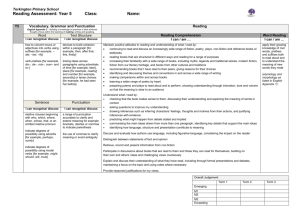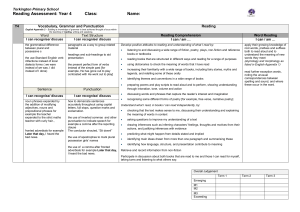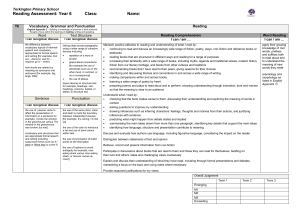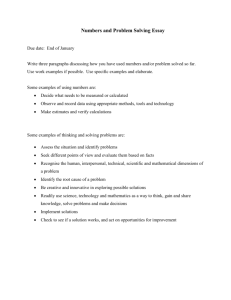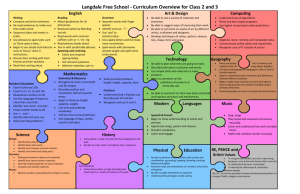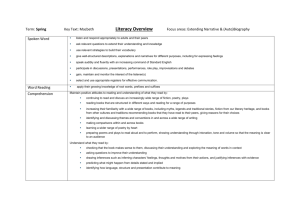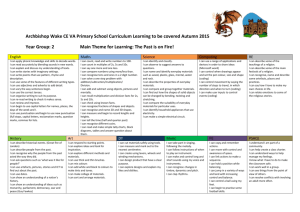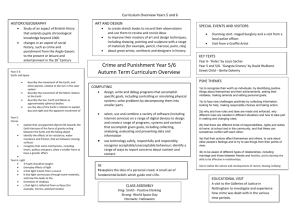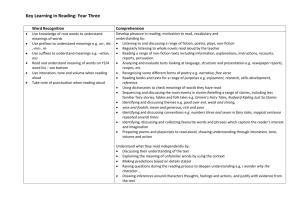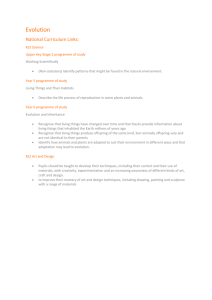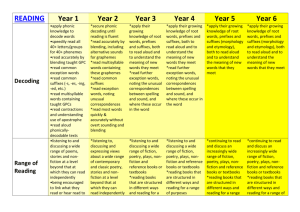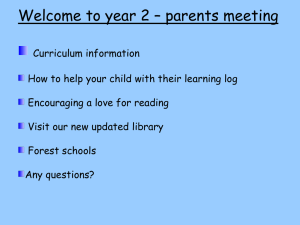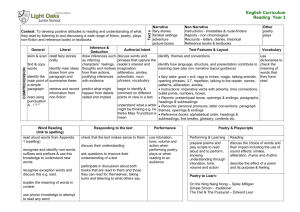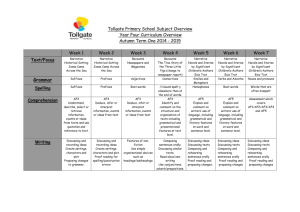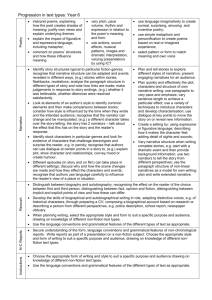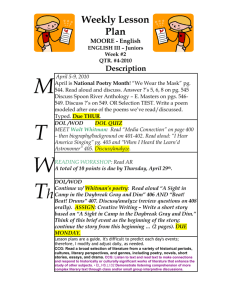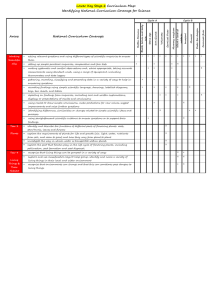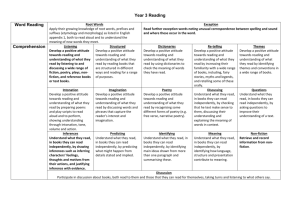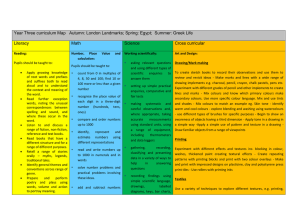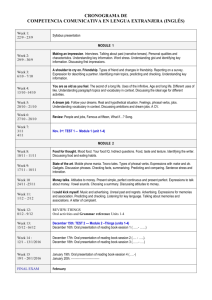Year 3 Reading - Torkington Primary School
advertisement
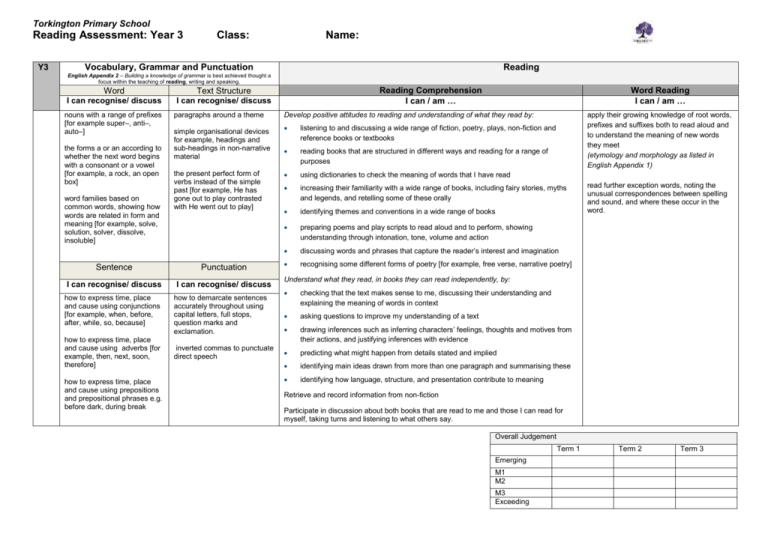
Torkington Primary School Reading Assessment: Year 3 Y3 Class: Name: Vocabulary, Grammar and Punctuation Reading English Appendix 2 – Building a knowledge of grammar is best achieved thought a focus within the teaching of reading, writing and speaking. Word Text Structure I can recognise/ discuss I can recognise/ discuss nouns with a range of prefixes [for example super–, anti–, auto–] the forms a or an according to whether the next word begins with a consonant or a vowel [for example, a rock, an open box] word families based on common words, showing how words are related in form and meaning [for example, solve, solution, solver, dissolve, insoluble] paragraphs around a theme simple organisational devices for example, headings and sub-headings in non-narrative material the present perfect form of verbs instead of the simple past [for example, He has gone out to play contrasted with He went out to play] Sentence Punctuation I can recognise/ discuss I can recognise/ discuss how to express time, place and cause using conjunctions [for example, when, before, after, while, so, because] how to express time, place and cause using adverbs [for example, then, next, soon, therefore] how to express time, place and cause using prepositions and prepositional phrases e.g. before dark, during break how to demarcate sentences accurately throughout using capital letters, full stops, question marks and exclamation. inverted commas to punctuate direct speech Reading Comprehension I can / am … Word Reading I can / am … Develop positive attitudes to reading and understanding of what they read by: apply their growing knowledge of root words, prefixes and suffixes both to read aloud and to understand the meaning of new words they meet (etymology and morphology as listed in English Appendix 1) listening to and discussing a wide range of fiction, poetry, plays, non-fiction and reference books or textbooks reading books that are structured in different ways and reading for a range of purposes using dictionaries to check the meaning of words that I have read increasing their familiarity with a wide range of books, including fairy stories, myths and legends, and retelling some of these orally identifying themes and conventions in a wide range of books preparing poems and play scripts to read aloud and to perform, showing understanding through intonation, tone, volume and action discussing words and phrases that capture the reader’s interest and imagination recognising some different forms of poetry [for example, free verse, narrative poetry] read further exception words, noting the unusual correspondences between spelling and sound, and where these occur in the word. Understand what they read, in books they can read independently, by: checking that the text makes sense to me, discussing their understanding and explaining the meaning of words in context asking questions to improve my understanding of a text drawing inferences such as inferring characters’ feelings, thoughts and motives from their actions, and justifying inferences with evidence predicting what might happen from details stated and implied identifying main ideas drawn from more than one paragraph and summarising these identifying how language, structure, and presentation contribute to meaning Retrieve and record information from non-fiction Participate in discussion about both books that are read to me and those I can read for myself, taking turns and listening to what others say. Overall Judgement Term 1 Emerging M1 M2 M3 Exceeding Term 2 Term 3
